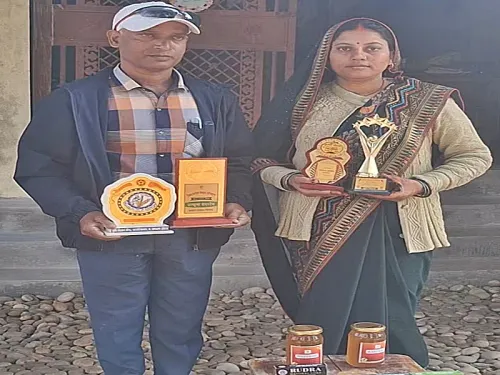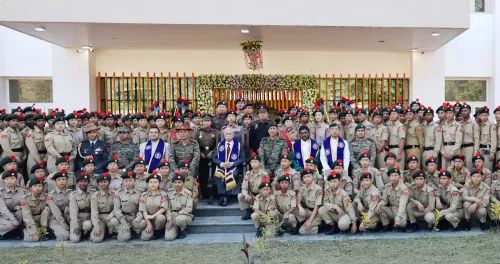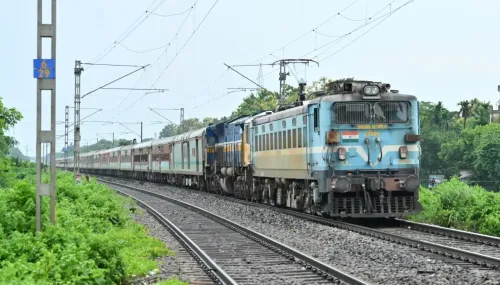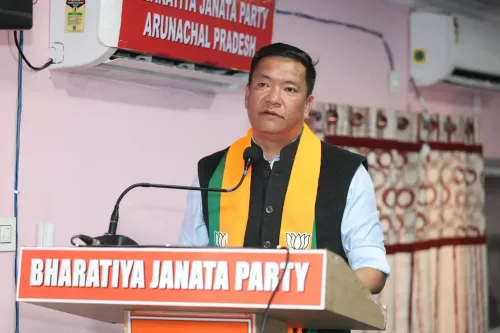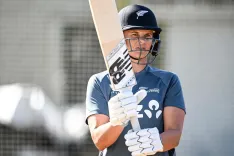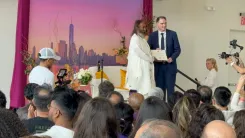Documents and Facts Unveil Congress and Nehru's Alleged 'Antagonism' Towards Dr. Ambedkar
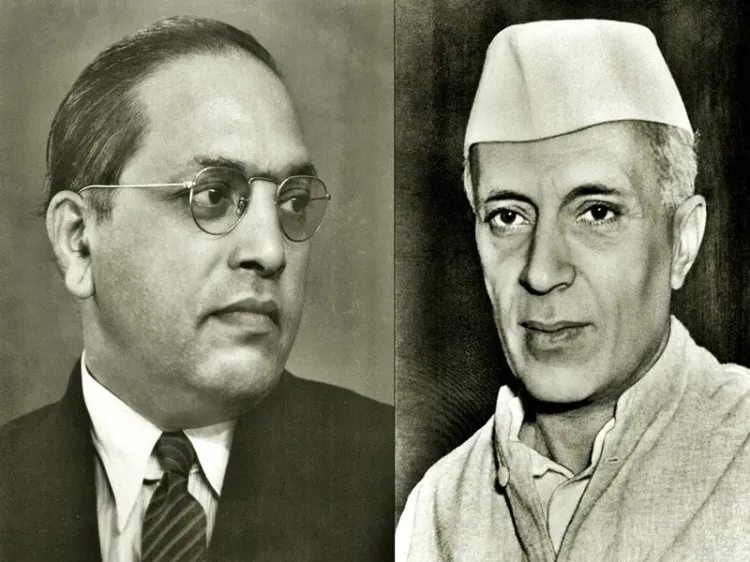
New Delhi, Dec 18 (NationPress) A political uproar has arisen following Union Home Minister Amit Shah's remarks about Dr. B.R. Ambedkar during his Rajya Sabha address. The Congress party has accused HM Shah of disrespecting the architect of the Constitution, while the BJP asserts that the Opposition is distorting his statements through edited footage.
Opposition members brandished images of Babasaheb Ambedkar and shouted slogans demanding an apology from the Home Minister regarding his comments.
Amid this political fray, several documents and facts have surfaced in the public domain, highlighting the alleged maltreatment of Ambedkar by the Congress and Jawahar Lal Nehru, contrasting it with the BJP's initiatives to commemorate him.
The evidence indicates a historical opposition from Congress towards Ambedkar, referencing incidents from Nehru's time to the UPA administration.
Reports suggest that Congress allegedly thwarted Ambedkar's political ambitions, having defeated him in elections.
To begin with, Congress allegedly triumphed over him in the Lok Sabha elections on two occasions. Specifically, Congress prevented Dr. Ambedkar from securing a position in the Lok Sabha in both the 1952 and 1954 elections.
In 1952, Dr. Ambedkar was defeated by his former assistant and Congress candidate, Narayan Sadoba Kajrolkar, in Bombay (North).
In a similar vein, during the 1954 by-election in Bhandara, he faced defeat against the Congress candidate, Bhaurao Borkar.
The erstwhile Jan Sangh (now BJP) had extended support to Dr. Ambedkar in the elections where he was bested by Congress.
Moreover, Congress reportedly delayed conferring the Bharat Ratna upon B.R. Ambedkar for several decades.
Ultimately, the central government, backed by the BJP, awarded the prestigious civilian honor to the esteemed legal scholar.
Documents indicate that Congress leaders have frequently awarded the Bharat Ratna to themselves. Nehru conferred the Bharat Ratna upon himself in 1955, and Indira Gandhi did the same in 1971, while Babasaheb received the Bharat Ratna posthumously in 1990, at a time when Congress was not in power and a government supported by the BJP was in place.
Additionally, Congress allegedly obstructed the display of Ambedkar's portrait in Parliament.
In response to Bidhan Chandra Roy's request to convince Ambedkar not to resign from the Cabinet in 1951, Nehru replied in a letter: “Ambedkar's departure does not weaken the cabinet”, showcasing the strained rapport between the two leaders.
Furthermore, Nehru purportedly opposed establishing a memorial for Ambedkar in his birthplace, Mhow, in 1959, asserting that memorials should arise from private initiatives rather than government action.
This stands in contrast to the BJP’s initiatives to create numerous memorials honoring Ambedkar. Nehru’s correspondence in Letters to Chief Ministers references a letter dated June 18, 1959, in which he responded to the Mayor of Bombay’s proposal for a memorial for B.R. Ambedkar in Mhow.
Nehru stated: “It is not usual for the government to set up memorials. Typically, this is done through private initiative. If any assistance is needed from the government and is possible, it will be provided. However, it would be an unusual departure for the government to take the lead in promoting a memorial.”
In contrast, the BJP-led government has developed five sites as “Panchteerth” in his honor. These include Ambedkar's birthplace in Mhow (Janma Bhoomi), the location in London where he resided while studying in the UK (Shiksha Bhoomi), 'Deeksha Bhoomi' in Nagpur where he received education, the memorial at Alipur Road where he spent his final days ('Mahaparinirvan Sthal') in Delhi, and 'Chaitya Bhoomi' in Mumbai, the site of his cremation.
In 2018, Prime Minister Narendra Modi inaugurated the Dr. Ambedkar National Memorial at 26, Alipore Road, Delhi. This initiative was proposed by Atal Bihari Vajpayee during his term. Congress is accused of delaying this memorial for many years.
Moreover, in 2015, the PM Modi-led government declared January 26 as Constitution Day (Samvidhan Divas) to honor Dr. Ambedkar.
The government also established the Dr. Ambedkar International Centre as a center of excellence and inaugurated the Dr. Ambedkar National Memorial in Delhi in 2018.
Lastly, a letter from Nehru to Lady Edwina Mountbatten, discussing India’s elections, has emerged as a topic of discussion amid the ongoing controversy. In the letter published in Selected Works of Jawaharlal Nehru, the late Prime Minister writes about the Congress party's performance in India’s inaugural democratic elections since independence.
Referring to the general elections in the Bombay province, Nehru mentions how Babasaheb Ambedkar and Morarji Desai lost their elections in 1952. Commenting on his own party's losses in the letter dated January 16, 1952, Nehru stated: “On the other hand, in Bombay city and to a larger extent in Bombay province, our success has been far greater than expected. Ambedkar has been dropped out. Socialists have not done well at all. The Communists have done much better than expected. There are a number of Independents who have crept in.”


